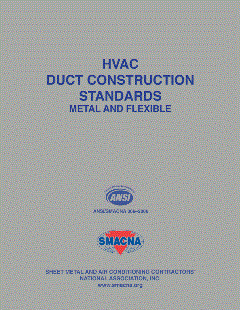On Aug. 19, the U.S. Court of Appeals for the D.C. Circuit denied a motion filed by the American Public Gas Association (APGA) asking the court to deny a request from Heating, Air-conditioning, and Refrigeration Distributors International (HARDI) to substitute as the petitioner in the case.
APGA’s request, filed in May, had gained the support of the U.S. Department of Energy (DOE).
The court’s order formally asked to be briefed again on the settlement agreement between APGA and DOE, HARDI’s motion to continue the lawsuit, and the merits of the lawsuit itself. All parties have been advised to agree to a briefing schedule within 30 days.
Regional Standards Refresher
Authority for regional energy-efficiency standards was first authorized by Congress in 2007 and eventually matured into a 2011 OEM-supported government regulation mandating minimum-efficiency standards for nonweatherized natural gas furnaces, central air conditioners, and heat pumps, based on the region in which the equipment is installed.
In December 2011, the APGA filed a legal appeal of the standard, arguing that the DOE didn’t follow proper protocol in promulgating the standards for nonweatherized natural gas furnaces. This January, the DOE and APGA reached a proposed settlement agreement that, if accepted by the court, would vacate the furnace standards and require the DOE to develop new standards within two years.
With the proposed settlement agreement awaiting a ruling from the court, and with a proposed May 1 enforcement date for the furnace standards quickly approaching, the Air-Conditioning, Heating, and Refrigeration Institute (AHRI) filed a motion in February to stay the enforcement date for the furnace standards for 18 months. In early April, with still no resolution in sight, the DOE declared it would not enforce the standards if they went into effect. Then, on the day the standards were to go into effect, the court granted AHRI’s emergency motion, which legally prevents the DOE from enforcing the standards while the lawsuit is ongoing.
Several industry organizations also filed motions throughout the legal process, including HARDI, which filed a motion in January requesting that the court allow it to substitute as petitioner in the case and continue the lawsuit if the settlement agreement were to be accepted. If that motion is granted, HARDI has said it intends to fight the DOE’s DFR on minimum-efficiency standards for central air conditioners and heat pumps, which the organization contends was also issued after the DOE failed to follow proper rulemaking protocol. The regional standards standard for central air conditioners and heat pumps is scheduled to be implemented on Jan. 1, 2015
Starting Over?
Several parties in the lawsuit — including Air Conditioning Contractors of America (ACCA), AHRI, DOE, and APGA — filed motions against HARDI’s request and expressed a desire for the case to be resolved as soon as possible.
“In a sense, we’re starting over at the beginning,” said Charlie McCrudden, vice president of government relations at ACCA. “The order sidetracks the possibility of a quick resolution to this case that was sought in the previous motion. ACCA would have preferred that the court resolved this case and relieved some of the uncertainty about these appliance standards.”
David Calabrese, AHRI’s general counsel and senior vice president, public policy, said their members also want a resolution soon.
“We don’t want to delay the issue any further — we just want this resolved and done so we can move on,” Calabrese said. “When the court asked for a further briefing, we felt it was unnecessary, and it would delay the case.”
But HARDI is not backing down. Jon Melchi, director of government affairs for HARDI, urged others involved in the lawsuit to put pressure on the DOE to withdraw its DFR for air conditioners and heat pumps, too, and he chided the other parties for not acting sooner to make a briefing schedule.
“The court was very explicit in its May 1 filing that it wanted us to schedule briefs,” Melchi said. “Our attorneys attempted to schedule the briefings as instructed, but unfortunately that didn't happen, and here we are in August, and the court has reaffirmed the exact same thing.
“We continue to hear that time is of major concern in this lawsuit, and we share many of those concerns, but this was an unnecessary three-month delay,” he continued. “Many of the same parties that continue to harp on the timing of this court case are the ones who keep kicking the can down the road.”
What’s Next
Calabrese said the latest development in the regional standards saga means that between the briefings, the anticipated oral arguments, and the three to 12 months it will take for the backlogged court to make a decision, the lawsuit could easily drag on for at least another year, if not longer.
“The earliest we’re talking about [a resolution] is fall of 2014,” he said. “We are very, very concerned this case could go right up to the Jan. 1, 2015 enforcement date for the air conditioner and heat pump regional energy-efficiency standards.”
Melchi said HARDI vows to continue the lawsuit against the DOE in order to right a wrong.
“The DOE’s direct final rule is crafted with major breaks in protocol and procedure, and the DOE should start over and do it the right way,” Melchi said. “We’re pleased that the court has again decided to allow us to present our case.”
In the meantime, many in the HVACR industry are once again left in limbo while the lawsuit slowly trudges it ways through the court.
“It’s almost impossible to plan, and we need certainty — everybody does,” Calabrese said. “It has a big effect on our members.”
For a comprehensive look at the regional standards timeline, visit http://bit.ly/ZOxWfp.
Publication date: 9/2/2013










